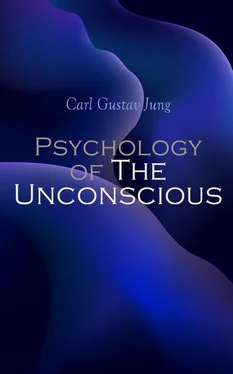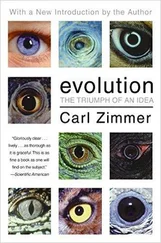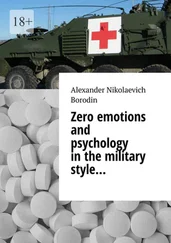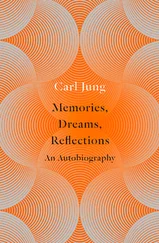1 ...8 9 10 12 13 14 ...25 Blissfully I feel as it worms
Itself into my soul
And kills me finally.
All these things are simple, and need no explanation to be intelligible. Somewhat more complicated, but still unmistakable, is the dream of a woman; she sees the triumphal arch of Constantine. A cannon stands before it, to the right of it a bird, to the left a man. A shot flashes out of the tube; the projectile hits her; it goes into her pocket, into her purse. There it remains, and she holds her purse as if something very precious were in it. The image disappears, and she continues to see only the stock of the cannon, and over that Constantine’s motto, “In hoc signo vinces.”
These few references to the symbolic nature of dreams are perhaps sufficient. For whomsoever the proof may appear insufficient, and it is certainly insufficient for a beginner, further evidence may be found in the fundamental work of Freud, and in the works of Stekel and Rank which are fuller in certain particulars. We must assume here that the dream symbolism is an established fact, in order to bring to our study a mind suitably prepared for an appreciation of this work. We would not be successful if we, on the contrary, were to be astonished at the idea that an intellectual image can be projected into our conscious psychic activity; an image which apparently obeys such wholly other laws and purposes than those governing the conscious psychic product.
Why are dreams symbolic? Every “why” in psychology is divided into two separate questions: first, for what purpose are dreams symbolic ? We will answer this question only to abandon it at once. Dreams are symbolic in order that they can not be understood; in order that the wish, which is the source of the dream, may remain unknown. The question why this is so and not otherwise, leads us out into the far-reaching experiences and trains of thought of the Freudian psychology.
Here the second question interests us, viz., How is it that dreams are symbolic? That is to say, from where does this capacity for symbolic representation come, of which we, in our conscious daily life, can discover apparently no traces?
Let us examine this more closely. Can we really discover nothing symbolic in our every-day thought? Let us follow our trains of thought; let us take an example. We think of the war of 1870 and 1871. We think about a series of bloody battles, the siege of Strassburg, Belfort, Paris, the Treaty of Peace, the foundation of the German Empire, and so on. How have we been thinking? We start with an idea, or super-idea, as it is also called, and without thinking of it, but each time merely guided by a feeling of direction, we think about individual reminiscences of the war. In this we can find nothing symbolic, and our whole conscious thinking proceeds according to this type. [13]
If we observe our thinking very narrowly, and follow an intensive train of thought, as, for example, the solution of a difficult problem, then suddenly we notice that we are thinking in words, that in wholly intensive thinking we begin to speak to ourselves, or that we occasionally write down the problem, or make a drawing of it so as to be absolutely clear. It must certainly have happened to any one who has lived for some time in a foreign country, that after a certain period he has begun to think in the language of the country. A very intensive train of thinking works itself out more or less in word form ; that is, if one wants to express it, to teach it, or to convince any one of it. Evidently it directs itself wholly to the outside world. To this extent, this directed or logical thinking is a reality thinking, [14]having a real existence for us; that is to say, a thinking which adjusts itself to actual conditions, [15]where we, expressed in other words, imitate the succession of objectively real things, so that the images in our mind follow after each other in the same strictly causal succession as the historical events outside of our mind. [16]
We call this thinking, thinking with directed attention. It has, in addition, the peculiarity that one is tired by it, and that, on this account, it is set into action only for a time. Our whole vital accomplishment, which is so expensive, is adaptation to environment; a part of it is the directed thinking, which, biologically expressed, is nothing but a process of psychic assimilation, which, as in every vital accomplishment, leaves behind a corresponding exhaustion.
The material with which we think is language and speech concept , a thing which has been used from time immemorial as something external, a bridge for thought, and which has a single purpose—that of communication. As long as we think directedly, we think for others and speak to others. [17]
Speech is originally a system of emotional and imitative sounds—sounds which express terror, fear, anger, love; and sounds which imitate the noises of the elements, the rushing and gurgling of water, the rolling of thunder, the tumults of the winds, the tones of the animal world, and so on; and, finally, those which represent a combination of the sounds of perception and of affective reaction. [18]Likewise in the more or less modern languages, large quantities of onomatopoetic relics are retained; for example, sounds for the movement of water,—
Rauschen, risseln, rûschen, rinnen, rennen, to rush, ruscello, ruisseau, river, Rhein.
Wasser, wissen, wissern, pissen, piscis, fisch.
Thus language is originally and essentially nothing but a system of signs or symbols, which denote real occurrences, or their echo in the human soul.
Therefore one must decidedly agree with Anatole France, [19]when he says,
“What is thought, and how do we think? We think with words; that alone is sensual and brings us back to nature. Think of it! The metaphysician has only the perfected cry of monkeys and dogs with which to construct the system of the world. That which he calls profound speculation and transcendent method is to put end to end in an arbitrary order the natural sounds which cry out hunger, fear, and love in the primitive forests, and to which were attached little by little the meanings which one believed to be abstract, when they were only crude.
“Do not fear that the succession of small cries, feeble and stifled, which compose a book of philosophy, will teach us so much regarding the universe, that we can live in it no longer.”
Thus is our directed thinking, and even if we were the loneliest and furthest removed from our fellows, this thinking is nothing but the first notes of a long-drawn-out call to our companions that water had been found, that we had killed the bear, that a storm was approaching, or that wolves were prowling around the camp. A striking paradox of Abélard’s which expresses in a very intuitive way the whole human limitation of our complicated thinking process, reads,—“ Sermo generatur ab intellectu et generat intellectum .” [20]
Any system of philosophy, no matter how abstract, represents in means and purpose nothing more than an extremely cleverly developed combination of original nature sounds. [21]Hence arises the desire of a Schopenhauer or a Nietzsche for recognition and understanding, and the despair and bitterness of their loneliness. One might expect, perhaps, that a man full of genius could pasture in the greatness of his own thoughts, and renounce the cheap approbation of the crowd which he despises; yet he succumbs to the more powerful impulse of the herd instinct. His searching and his finding, his call, belong to the herd.
When I said just now that directed thinking is properly a thinking with words, and quoted that clever testimony of Anatole France as drastic proof of it, a misunderstanding might easily arise, namely, that directed thinking is really only “word.” That certainly would go too far. Language should, however, be comprehended in a wider sense than that of speech, which is in itself only the expression of the formulated thought which is capable of being communicated in the widest sense. Otherwise, the deaf mute would be limited to the utmost in his capacity for thinking, which is not the case in reality. Without any knowledge of the spoken word, he has his “language.” This language, considered from the standpoint of history, or in other words, directed thinking, is here a descendant of the primitive words, as, for instance, Wundt [22]expresses it.
Читать дальше












